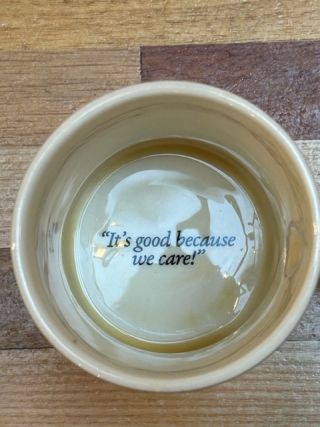Career
Affection Economy: How Caring Can Change the World
Caring about others and our work enlarges our experience and its value.
Posted January 29, 2024 Reviewed by Monica Vilhauer Ph.D.
Key points
- Vocations, side hustles, jobs, and careers take up the biggest part of our days.
- Working from a place of care allows us to do the work well and in a renewable way.
- Many solutions are sprouting up that can change the broken global economy towards thriving people and planet.

As people who study uncertainty, innovation, ecosystems, and work, our research may seem disconnected but in fact shares a critical orbit: a fundamental longing for all people to live rewarding lives by uncovering what it is they are meant to do, to find the courage to overcome the uncertainty about how to arrive there, and to receive access to a fair economy that protects and encourages their participation in that work. But while we envision such a better world, the reality is also harsh…earning a living is stressful, challenging, and in too many cases “violence—to the spirit as well as to the body,” as sociologist Studs Terkel says.
From childhood, we are asked what we want to be when we grow up, and as we fine-tune those ambitions and size up the lifestyle and earning potential alongside the obstacles, we find out that those careers often prove more difficult to achieve. Barred admission to schools or programs, insufficient funds, wrong timing or location, or mismatched aptitude or skills may yank the rug out from under us. Sometimes, even when we doggedly pursue a path and manage to land a position, the lived experience of that career is different than we imagined or asks too much of us. Or we fear, like so many, that the jobs we have worked so hard to be worthy of will no longer be needed as generative AI sweeps in and promises "better" performance for peanuts.
One of the most maladaptive things we do is fuse our identity with the role we currently fill in the realm of work. When it’s a low-skill or unglamorous job, we may feel shame or frustration instead of seeing how the funds we earn sustain us while we figure something else out. When it’s a hot-shot, coveted role, we may cling too tight to its prowess, simultaneously feeling either imposter syndrome and/or more important than others, but terrified of losing what we have achieved. Neither of these channel settings feels authentic or sustainable.
There is a better alternative and it’s available to everyone. We have been studying a different way of working—research we have code-named “The Earnest Project”—to understand and learn from individuals who have found a deeper motivation, value, and even pleasure in their work, including work they don’t particularly love. Plenty of researchers have studied meaning and work before us, but interestingly, the tie to emotion—how it gives you peace and dignity—is rarely examined.1
We aren’t the first to notice that valuing work done for the joy of the task itself has a different, magical quality. While the Japanese call it ikigai, (where iki means life and gai refers to the value something has), we call this "earnest"—an outside-the-rat-race, more mindful version of working that we have witnessed in entrepreneurs, artists, designers, and changemakers who are starting companies and initiatives that have an authenticity and gravity that you recognize when you see it. At the beloved Holybelly cafe in Paris, founders Sarah Mouchot and Nico Alary attribute the delicious food, fantastic service, and adoring fans to their motto they’ve had from the beginning: “It’s good because we care.” It informs all the decisions they make; hiring, treatment of employees, even their friendly ambiance and collaborations are filtered through this sense of whether they can really care about it in a sustainable way.
Another earnest workplace we’ve admired since discovering them in the early 2000s is Unto This Last, a woodworking studio in Shoreditch, London aimed at building beautifully simple, made-to-order, birch laminate home accessories and furniture. We remember visiting one Saturday afternoon just after the beginning of the war in Ukraine, which drove up the prices of birch—their key input—to sky high prices overnight. They were mid-scramble to find a new supplier and/or to change materials, which meant high-stakes worry, a steep learning curve, and the requisite experiments and failures.
Fast forward 18 months later to April 2023, when some free time in London led me to check when the shop might be open. My eyes met that tiny italic red font: “permanently closed.” My jaw dropped. It had to be a mistake. But my heart sank when I read the reviews—scathing accounts of unfulfilled orders, bankruptcy, fury at the sense of being hoodwinked. I quickly went to the website and found a generous (and earnest) play-by-play attempt to explain Unto This Last’s unraveling written by the founder, Olivier Geoffrey. I anxiously read through the frustration and angst that had transpired and detailed instructions about how to be refunded with urgent pleas to act quickly before the claim was closed. He really cared about putting Unto This Last down with as much integrity as possible.
Two days later, Nathan and I met Olivier for breakfast. His current predicament overlapped so fundamentally with our two main research projects: Uncertainty (how to navigate and sustain self in situations of both planned and unplanned uncertainty) and The Earnest Project (finding meaning and satisfaction in doing work well). We didn’t know that our conversation with him would launch us on a new project.
After brief introductions, but before digging deeper into the massive uncertainty he faced, I asked Olivier “Why was your shop called Unto This Last?” Nathan rolled his eyes.
“It’s the name of an essay by John Ruskin…the one that a young lawyer in Johannesburg picked up to read on an overnight train and in the morning…he was Gandhi.” We were speechless. We knew John Ruskin to be an art critic and friend of the Pre-Raphaelites, a thinker wary at the outset of the industrial revolution.
“Wait, what? Gandhi?” we both stammered.
Olivier continued, nonchalantly, “I’m serious. He was on a night train when he started Ruskin’s “Unto this Last”, and in the morning, he knew his old life was over; that the world needed to change.”
Written on the heels of an unhinged industrial revolution, "Unto this Last" is quite simply a clarion call for a new economy, one based on mutual human affection in every interaction. Devastated at the grim reality between owner and foreman (manager and assembly line worker, CEO and assistant), where both hold something back from the other, wary about the possibility of either their own diminution or being taken advantage of, Ruskin asks: What if the owner treated the employee with as much affection as they would if they found their own child among the workforce? Rather than negotiating to extract the most possible from one another at arm’s length, care and concern for the people doing the work would encourage camaraderie, trust, diligence and excellence and the ensuing growth of the enterprise would be an organic rewarding experience for all involved.
It’s a toothy essay and takes some patience to read, but it asks a question that fundamentally challenges the dominant economic logic of inevitable scarcity and self-interest. Ruskin was not naive to the world but did not shy away from suggesting how our economy could be different, even better, if we approached it through the lens of affection. How much more creatively and whole-heartedly might those who work exert themselves if their leader or boss treated them with true affection—as if the person working were their own son or daughter. Contemporary scholars in a range of fields are asking similar questions, seeking and finding solutions with an “aim of meeting the needs of all people within the means of the living planet.2” New Yorker journalist Nick Romeo’s book outlines a vast array of these practical solutions including living wages, job guarantees, worker-owned cooperatives, and public budgets3. It’s heartening. But it all will require our hearts.
If work is a daily existential reality for humans, and not all tasks feel worthy of our affection, how realistic is it to find affection for things we don’t like? Some colleagues, bosses, and customers aren’t going to stop being condescending, rude, or indifferent, and some tasks are always going to be irritating, extremely difficult, or unsustainable to our well-being. Gandhi encouraged that ”if we could change ourselves, the tendencies in the world would also change.” We are curious about this idea that one individual working from a place of affection (for what they do or who they are doing it with and for) could shift the collective human experience of work and its value and even profitability. And if this experiment reveals that we are in a place where dignity, good will, and care isn’t being reciprocated, maybe we could start looking for a place where it would be.
References
1. Rosso, Brent D., Kathryn H. Dekas, and Amy Wrzesniewski. "On the meaning of work: A theoretical integration and review." Research in organizational behavior 30 (2010): 91-127.
2. See Kate Raworth. Doughnut Economics Model. https://doughnuteconomics.org/about-doughnut-economics
3. Romeo, Nicholas. The Alternative: How to Build a Just Economy. Basic Books, UK Jan 2024.




